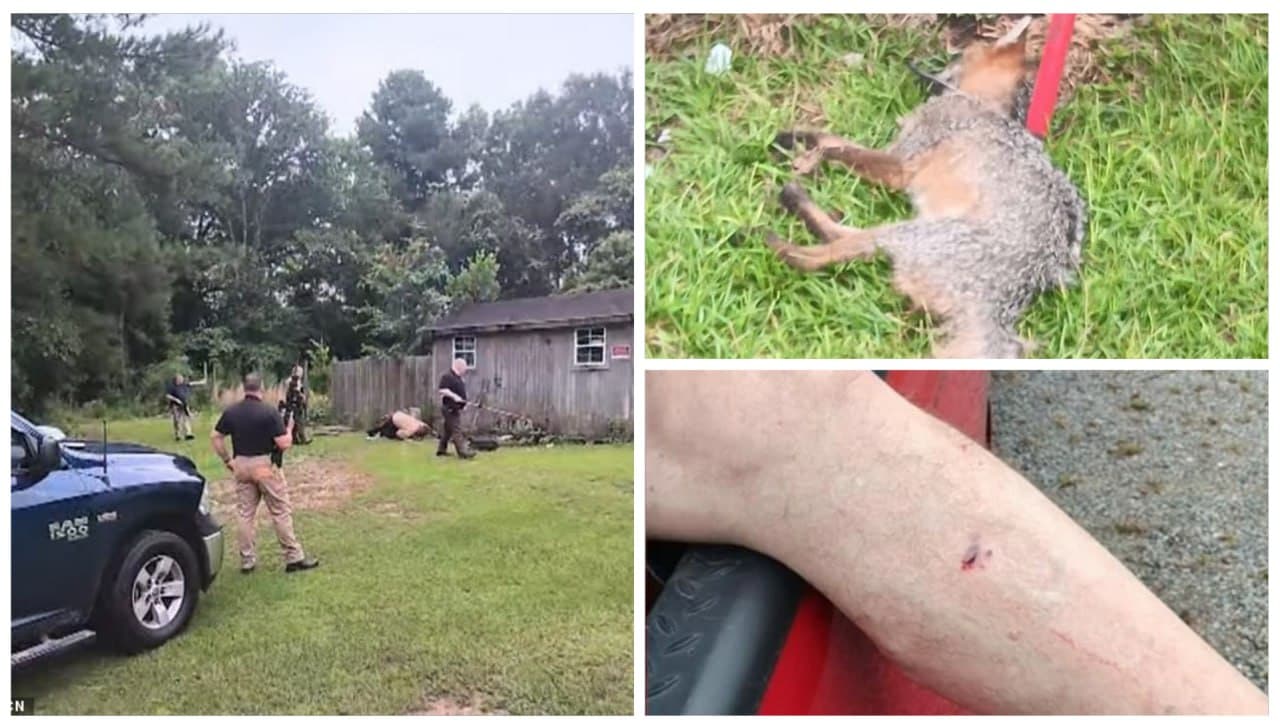Rabid Fox Bites Woman and Elderly Man in North Carolina, Sparks Urgent Health Concerns
In a startling incident that has raised health alarms in a North Carolina community, a rabid fox attacked two individuals, including a woman and a 77-year-old man. The attack occurred in broad daylight and has prompted local authorities to take immediate action against the potential spread of rabies in the area.
Background & Context
On a typical day in North Carolina, Jordan Burns stepped outside her home with her child after hearing a distressing sound, which she initially believed to be a cat crying under her car. However, the situation took a dangerous turn when a fox suddenly emerged from beneath the vehicle and bit her on the leg. Despite her instinct to help the animal, Burns found herself in a perilous encounter that would lead to further health concerns for the community.
Burns managed to grab the fox by its snout and remove it from her leg, but not before the animal inflicted a second bite on her arm. This alarming event was compounded by reports that the same fox had also attacked a local elderly resident later that day. The 77-year-old man was subsequently taken to the hospital for treatment, highlighting the urgent need for community awareness regarding rabies and wildlife interactions.
Key Developments
Following the attacks, local wildlife officers launched a search for the fox, which was eventually located in nearby woods. In a decisive move to prevent further incidents, authorities euthanized the animal and conducted tests to determine its health status. The results confirmed that the fox had tested positive for rabies, a viral disease that poses significant health risks to humans and pets alike.
The rabies virus is primarily transmitted through bites or scratches from infected animals, making this incident particularly concerning for residents in the area. With rabies being a fatal disease if left untreated, health officials are advising the community to remain vigilant and to seek immediate medical attention should they encounter any wildlife displaying unusual behavior.
Broader Impact
The rabid fox incident has sparked discussions about wildlife management and public health in North Carolina. Experts emphasize the need for increased awareness about rabies and the importance of keeping a safe distance from wild animals. Dr. Emily Carter, a local public health official, remarked, "This incident serves as a reminder that interactions with wildlife can pose serious health risks. We urge residents to avoid approaching or attempting to help wild animals, as their behavior can be unpredictable."
Historically, rabies outbreaks have been linked to various wildlife species, including raccoons, bats, and foxes. As previously reported, rabies is not just a local issue but a concern across the U.S., with thousands of cases reported annually. The recent spike in rabies cases among wildlife populations in the region has raised alarms among health officials, who fear that complacency could lead to more human infections.
What"s Next
In the aftermath of the attacks, local authorities are implementing measures to educate the community about rabies prevention and wildlife safety. Health departments are planning informational sessions for residents, focusing on recognizing signs of rabies in animals and understanding appropriate responses to wildlife encounters.
Additionally, as part of their wildlife management strategy, officials are exploring options for rabies vaccination programs aimed at local wildlife populations to help curb future outbreaks. As communities grapple with the implications of this incident, ongoing surveillance and public education will be critical in addressing the health risks associated with rabies and ensuring the safety of residents.
For further updates on rabies-related incidents and community health initiatives, stay tuned to local news sources.







![[Video] Gunfire between Iraqi security forces and Sadr militias in Baghdad](/_next/image?url=%2Fapi%2Fimage%2Fthumbnails%2Fthumbnail-1768343508874-4redb-thumbnail.jpg&w=3840&q=75)
